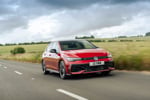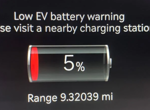By Jay Nagley, managing director of RedSpy Automotive
There are not a huge number of Government policies which work as intended: indeed so many of them have unintended consequences, from the Child Support Agency to ASBOs, that you sometimes wonder why they bother with half of them.
However, capital write down allowances for cars with CO2 emissions of up to 160g/km certainly delivered the goods: the proportion of 160g/km-plus cars sold plummeted from 37.7% in 2008 to 15.5% in 2011.
The last budget surprised the industry by moving the limit for the 18% allowance down to 130g/km in 2013 (with the limit for the maximum write down allowance lowered from 120g/km to 95g/km) – a reduction of 18.75% in the target for company cars. Given that CO2 output reduces annually by 4% on average, it’s a pretty significant reduction.
It will make no difference to very small cars and very large cars: superminis (apart from a hot hatch) that cannot get below 130g/km are nearly unsaleable, and most top executive’s cars were above 160g/km anyway. However, it will annoy the product manager of the BMW 730d, for example, which has just been reduced to 148g/km of CO2 in the clear expectation of a tax benefit.
Medium to executive sectors
The big issues will involve the lower medium to executive sectors where a lot of cars hover around the new benchmark. Look at the Ford Focus, the best-selling lower-medium model. It means nearly all the diesels are still eligible for the allowance.
However, amongst the petrol engines, only the 1.0 Ecoboost still is – the 1.6 Ecoboost was homologated at what was presumably thought to be a future-proof 139g/km of CO2. Paradoxically it could be good news for the new Focus ST – at 169g/km of CO2, it is now in the same bracket as most petrol-engined models in the class, so buyers might choose to be hanged for the 2.0 ST sheep, rather than the 1.6 lamb.
This rule change could also impact on the expected swing back from diesel to petrol, because 130g/km is not an easy target for a lower-medium petrol engine of more than 1.2-litres. Company car buyers are going to face a hard choice between a more-expensive-to-buy diesel (another £500 or more) or a more-expensive-to-run petrol.
The choices get starker for larger company cars. You cannot buy a petrol-engined car the size of a Passat with less than 130g/km of CO2. For manufacturers that do not have even a diesel engine under the new limit, it is a very serious problem. While most of the big players are okay, with at least one version at around 120g/km of CO2, not all are so fortunate. For example, all Honda Accords and Mazda6s are above 130g/km, including the now ironically-named Mazda6 Business Line diesel. No doubt these cars can be got below the threshold (Honda has a new 1.6-litre diesel coming), but they need to be in place soon. The new rules start in less than a year, and leasing companies will soon be setting rates for 2013.
In the executive segment, Audi and Mercedes-Benz have got down to 129g/km, while BMW has just hit 119g/km. However, Jaguar Land Rover is facing a mixed picture. The lowest Evoque three-door is 129g/km, but the lowest Evoque five-door is at 133g/km and the XF 2.2D is 135g/km. Both the two latter figures would have looked excellent a few months ago.
One has to wonder if the tax changes are motivated principally by a green agenda, or a panic reaction to falling revenue as cars become more economical. Car companies are right to be a little suspicious. Green policies are usually marked by steady, incremental increases in targets – say 10g/km per year. That way companies can plan for them and there is an incentive for continued improvements. A sudden swingeing cut in the target is not something that is easy to react to.
Car buyers will react and model mixes will change sharply, but it is going to be a jolting change for the industry. Companies in every industry value predictability of the legislative framework. The fact that no-one saw this change coming is less a mark of the Government’s radicalism than a measure of its habit of announcing sudden changes out of the blue.
















reddead - 10/09/2012 16:29
It's a taxtation policy that the government didn't correctly think through in the first place and are now trying to keep pace with an industry that has responded and leapt ahead. Rather than encourage greener car use, all it will do is push company car buyers and users into specialist segments, and potentially make more companies opt out, reducing the governments tax revenue. Also, guys check you facts, the new Mazda6 launches at the end of this monthi in Paris...you've run a story on it and it will easily meet these limits.